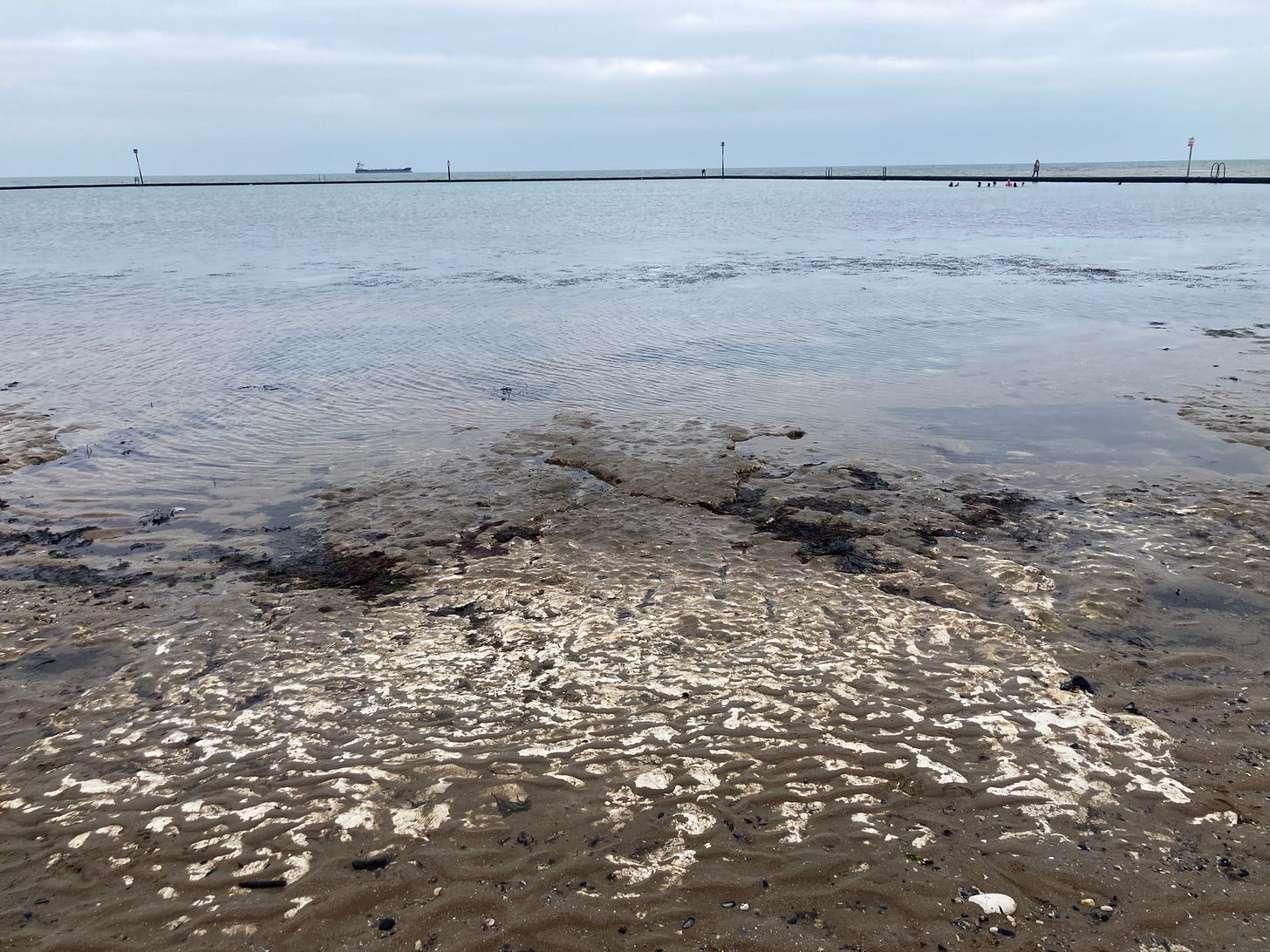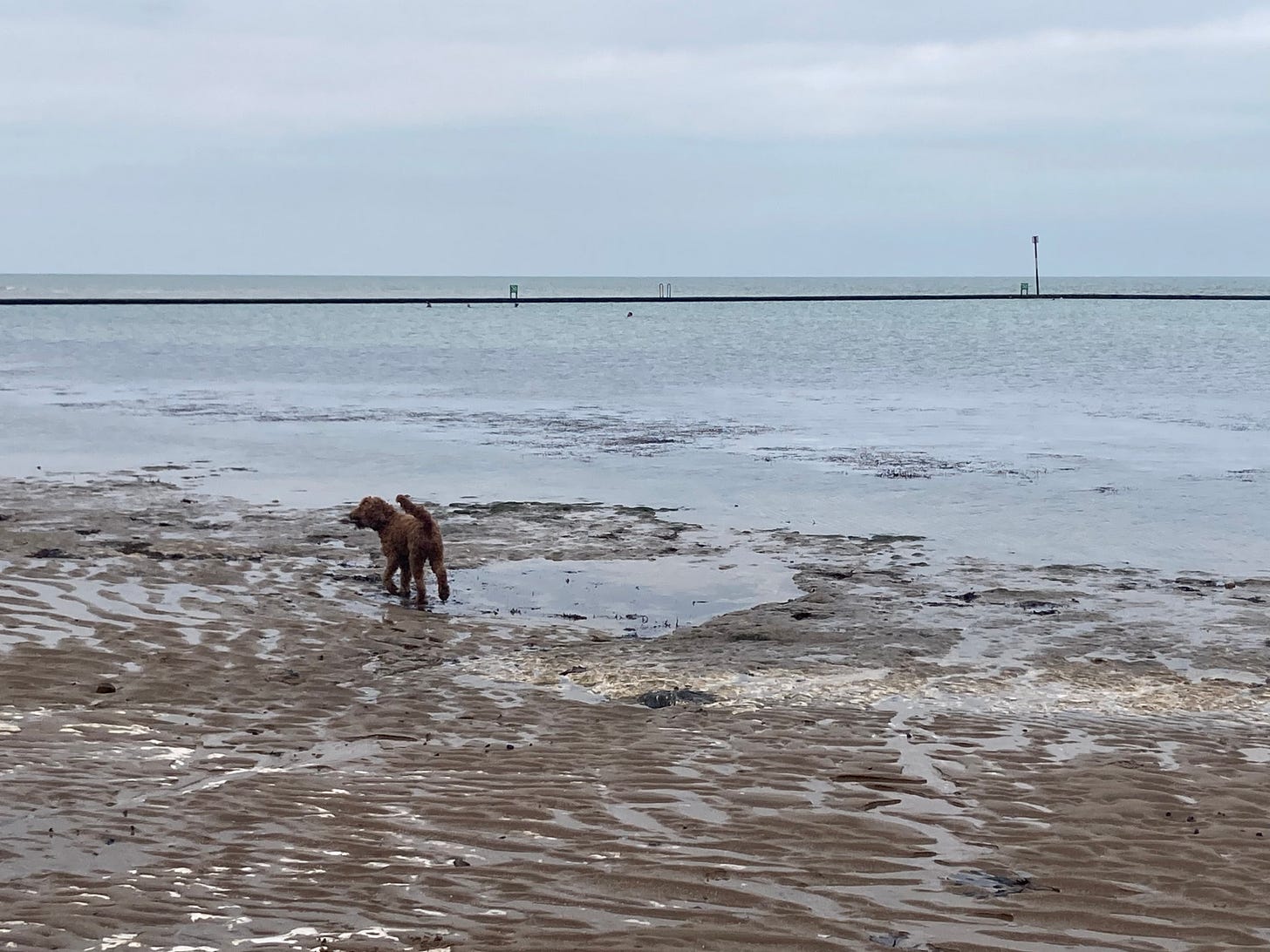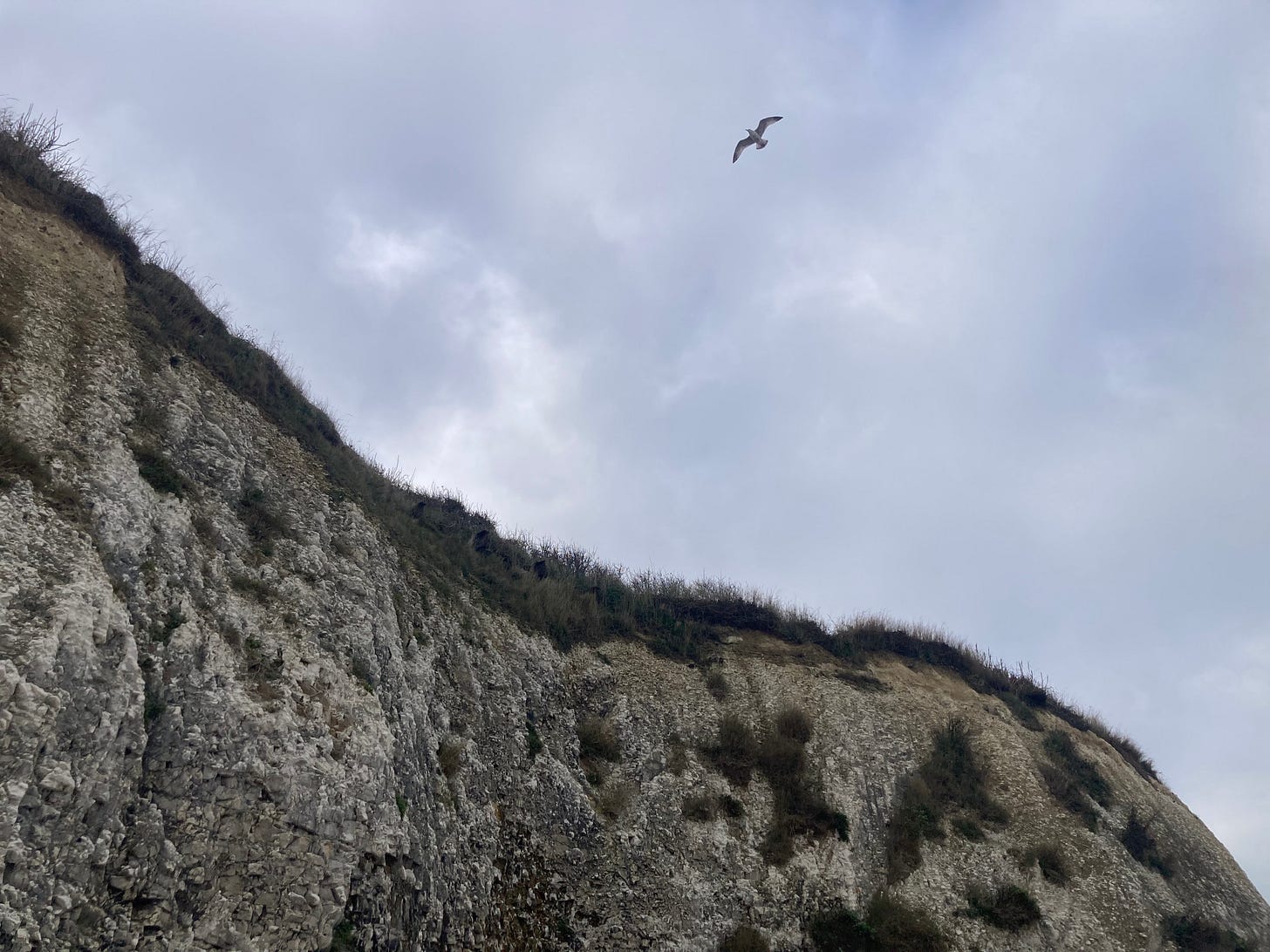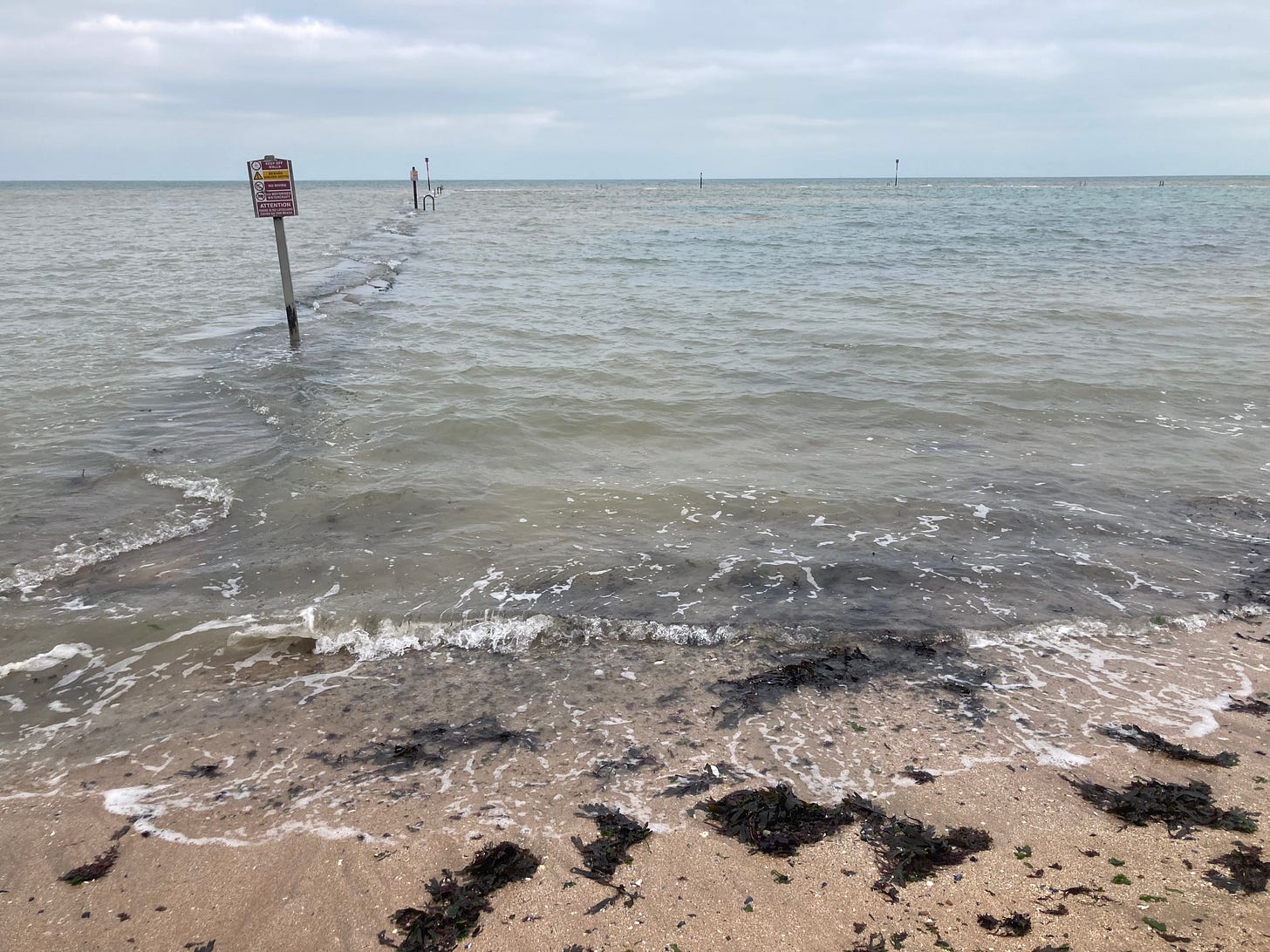I am sick but I am thinking of the sea. I remember it, I long for it. I want to drop into its cold clarity, to freeze my mind, my every day concerns, to find a window into hope and creativity and action and rest, the much needed, cold clench that, when it releases leaves me floating, content, able to stop, to breathe, to sleep, and then to carry on with a clearer picture of where I’m going, what I’m doing, where I want to be. Instead I am sick on the sofa, trying not to cough my stomach out like a cursed girl in a fairytale, finding a frog there, perhaps, or a stone. I have a novel out on submission, a novel filled with old houses and an abandoned estuary, echoes of the past tangling with half-forgotten legends and, more than anything, filled with the stories of women. In the face of the past few weeks it is hard not to feel hopeless, although what we need, as
puts it, is hope, hope, hope. It is hard not to feel that women’s stories will once again go ignored and it is hard to create more, especially from a place of sickness. Even though perhaps it is creativity that will save us, creativity and the mindset it requires - an open, questing, reaching, stretching mind, yearning to learn from other ways of being. And, as always, it is hard to wait. But while I wait I will remember, I will remember a week ago when I went to the sea. At the time I did not have the distance to describe it. But now it is becoming easier again.I drove early to the sea. The sun wasn’t shining and the sky wasn’t blue. The sea appeared as an iron slash across the horizon. I saw it, first, on the busy beach, edged with slot machines and fish and chip shops. I kept driving, past the popular sands and round, to the tidal pool. There, the tide was perfect. Coming in, close to the tipping point, but still low enough for the pool walls to rise, only just, above the surface. I changed, fast, ignoring the first flush of doubt as the wind hit my skin. On the sand the chalk pushed up like knuckles, clenched and bursting through too-tight skin. I walked out, along the barnacled concrete wall.
Thick green weed like mermaid hair, like the fur of an aquatic muppet, lines the top of the wall. In places it is emerald; in places it is lime. In places it is every colour in between. There are patches of white lichen too. There are places where the concrete cracks. It never quite dries out and, even now, when the tide has been out so long it is almost back in again, it is still slickly brown. Inside the wall, the water laps. A couple on the shore scream at their dog, who has taken off along the sand. Cora, they scream. CORA.
I reach the metal ladder and lower myself in. One rung, two, three. I turn, still holding fast to the metal, my stomach soft against hard cold water. I like to see where I am going. I like to control the descent. The wall behind me is thick with bladderwrack; I feel it tickle my knuckles, leathery fingers, waving fronds. I breath in. I breath out. I let go. The water from above seemed turquoise. From within it is closer to pewter. The sun is behind me, the top of the wavelets sparkling. The wind pushes water - slap - into my collarbone, into my eyes.
Cora is another name for Persephone, daughter of Zeus and Demeter, Queen of the underworld. Cora from the Greek Kore, meaning maiden or daughter, a part of the now tired tradition of describing women by what they are to men. Abducted by her uncle Hades when picking flowers in the fields, she is forced to marry him. The earth becomes barren without her, and so Zeus intervenes to free her - as long as she has eaten nothing in the underworld. Hades, however, has tricked her into eating some pomegranate seeds, and so she must return each year to the underworld for the winter months, returning in spring when the world blooms again at her coming. She is linked to fertility, to the seasons, to death. She knows darkness and she knows hope, the spinning, tumbling cycle of both. She is Queen of the Underworld. She is many things, all at once. In some traditions it is forbidden to speak her name.
But not here, where the water and the sky are twinned grey and the couple on the beach still call for their mischievous dog. Cora. CORA. I dive below the surface, salt sting, cold clutch, and I can see only waving grey-green-beige. No bottom, no surface, only murk. Not the underworld, perhaps, but under-something. Underneath, below the surface, in the place where no one can see nor comment nor worry. A place for screaming, as explored by
here, and a place for raging, for resetting. For letting out all that is held in.Surfacing, I swim, not for the far side, not for a length, but for the far wall. I float with my feet up, toes tiny white cocktail sausages shrivelling in the cold. And then I go to the ladder on the very edge. It hangs on an angle, off kilter in this wild world. But I do not need straight edges.
I hold the handles and haul myself up, hips to the wall. The wind chill is strong on my cold bare skin. The water meets the concrete. Level. The waves meet the wall. The tide is coming in, reclaiming this space. Screaming itself. The white water rolls in, crashes against the stone, surges over it, white rivulets streaking the concrete, waterfalls cascading into the contained box of the pool. Beyond the wall, white water draws back, apart, fracturing like lace, spinning and gliding, forming reforming. I watch for another one. The water rises, drops. Then again rises, races, crashes. White foam breaking against the first thing it meets. The square subsumed, solid made liquid, the manmade disappearing, drenched, liquid slicked.
I let the rungs go and fall back into the cold. The roar of the waterfall tide keeps rising. I turn and I swim for the ladder closest to shore. I change and by the time I am done the tide is at the perfect level; all the walls are covered in an inch of ocean. Swimmers walk on water. The pool is there beneath the surface, still visible like a flooded village, a reclaimed Lyonesse, but it will be gone soon. Soon all we will see is the rolling grey waves, and even though we will know that there is a structure underneath, the opaque water will swallow it for the next few hours. It will no longer be a place of human leisure, but merely another part of an endless ocean. The pool is about to be swallowed.
The tides will keep coming, keep rising, falling, pulling back, racing in. The tides do not care. Each time they will bring something new; a mermaid’s purse, a bulge of polystyrene, a discarded hairband, a cockle shell. Each time the wrack line will offer something new and each time it comes perhaps we will strive to be different too. To change, to grow, to learn. That is what my hope is.











Your stunning words brought me right back to childhood summers at our cabin on the Rhode Island shore. Now, as an adult living in Minnesota, I long for the ocean, the scent of salt water, the feel of the sand under my feet, the echo of waves crashing on the shoreline. Thank you, Bonnie for this beautifully written piece.